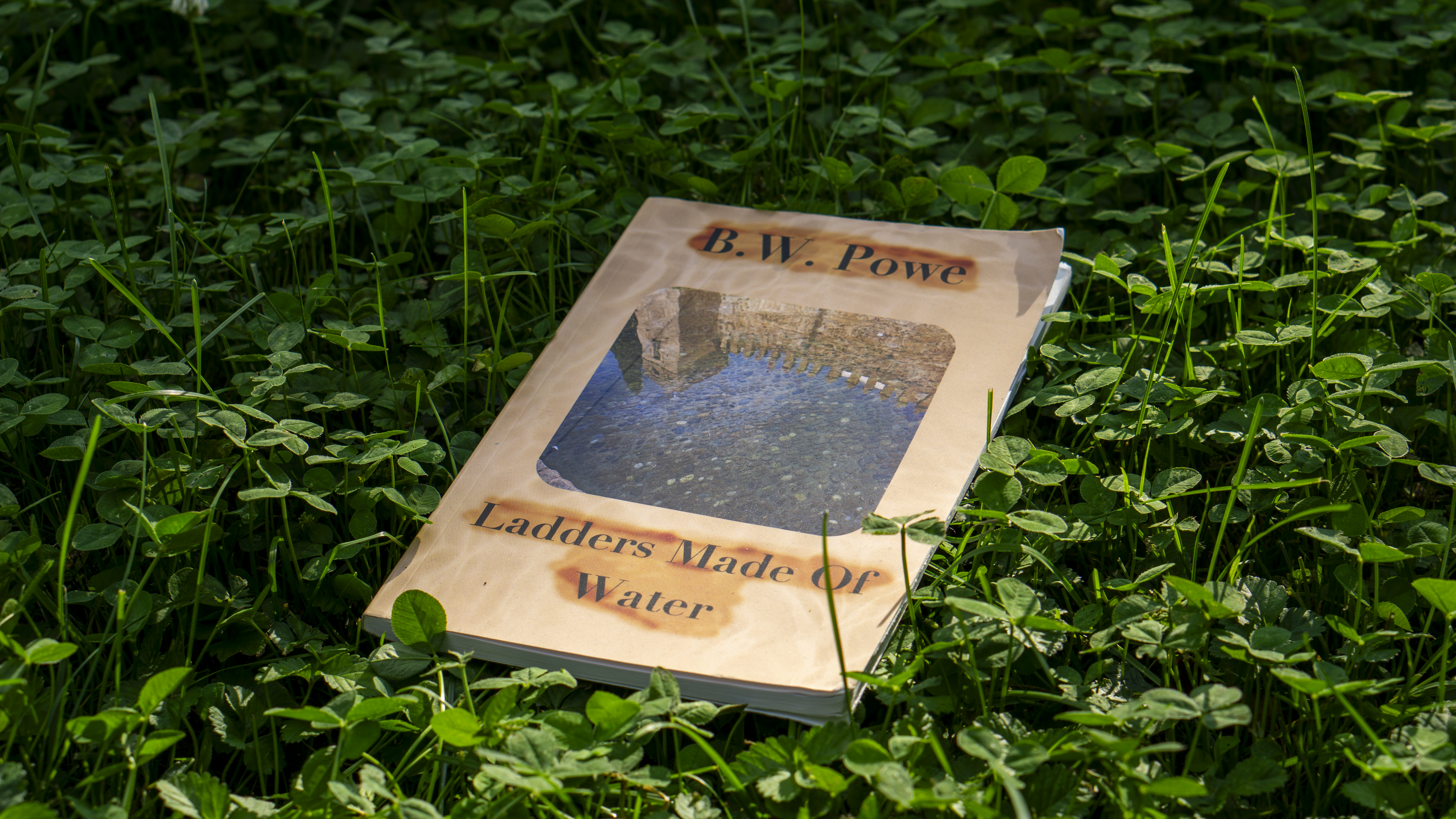B.W. Powe is a writer, poet, York University teacher, and philosopher. Recently, he published a new visionary book called Ladders Made of Water (Stream Elsewhere Press 2023), a collection of absorbing and moving pieces ranging from poetry, lyrics, lectures, movie reviews, aphorisms, and fables. Like the algorithm feeds that flood our phones, computers, and tablets every day, Ladders transitions from subject to subject, in variant tones and moods.
Powe reviews a few films (Dune Part 1, Eternals, Nomadland), and proposes a character monologue homily on Harry Potter. The movie reviews are far from the snarky, critical attitude that dominates most modern criticism. Instead, he offers readers movie meditations, exploring how these films relate to the current crises of our time.
Powe connects Nomadland with Jack Kerouac’s On The Road. In the review, he shows how we, whether aware of it or not, are journeying in a Nomadland. Powe says: “We’re nomading, you and I, always on the pilgrimage we didn’t know we’d started, inside someone’s quest on the vague thresholds looking for vapour trails.”
The crossroads is a primary theme in Ladders Made of Water. In another poem titled “The Thin Red Line,” he shows another rendition of this idea: “The dream path is a thin red line with many intersections. / The path must be spare because it’s harrowed by traps and tangles.”
The crossroads encompasses Powe’s underlying vision: we are individually and collectively journeying through the crossing and curving roads. These roads can lead to different results. In The World Being Mashed Smashed into Bits: A Panoramic Fit Countering History’s Crush, he opens with the words, “Peace Piece.” Roads we go down could bring us peace, shred us to pieces, or (and?) do both.
Ladders Made of Water presents a double vision of peace and piece. The peace side is restorative and healing. The vision of piece opens the wounds of our day, resulting from the COVID-19 pandemic, ecological catastrophes, technology, wars, and growing societal division. Powe explores the via negativa beside the via positiva, the ascent and descent, the light and darkness, dual and non-dual, clarity and obscurity, transcendence and immanence, the breakdown and breakthrough, the everywhere and nowhere. Sometimes these opposites lead to the same thing, are different, or exist together.
The interplay between piece and peace is fascinating; the opposites collide with each other, leading to a vision of multiplicities. Things are not either or, this or that. They are multiple. In The Medium and the Light Speech, Powe perfectly captures the piece and peace working together: “Stretching and imploding … The Self, seeking transcendence and yet experiencing the magnetic draw toward cataclysm.” These examples embody his visionary approach, a challenging but enriching approach for the imagination and intellect.
On the piece side, Powe identifies the current and potential transformations emerging from technology. His sensitivity to technology’s effects comes from his background: Powe was mentored and taught by Marshall McLuhan, arguably one of Canada’s most significant intellectuals and philosophers. From the 1950s to the 1980s, McLuhan’s work prophesied the significance of technology and media for the coming decades. He saw how the digital realm would evolve and change our consciousness. Powe builds on McLuhan’s prophetic perceptions through his poetic sensibilities.
In his lecture One Must Be Absolutely Hypermodern, delivered at McGill University, he states, “Technology is the total environment. Gaia has become Cosmopolis. This is what I’ve called in other places the Genesis Overdrive … The evolution from Gaia to Cosmopolis is the beginning of greater fast-time metamorphoses.” In another part, the poem Song and Shadow Catching foresees a decaying world, similar to J.G. Ballard’s visions of a swirling and unruly environment: “Merciless rain, heat-wind, parched earth, field fires / Overwhelming the song that carries our aspiring mind. / The song scorched, buried.” These sections encapsulate a vision of pieces where the grand forces lead to a breakdown.
Despite the all-consuming chaos, Powe illustrates restorative peace. In Rights for Your Imagining, he gives readers a warming set of creative rights which cultivate inwardness: the ability to sense, perceive, seek, and harness the imagination to form inner strength. Right #18 states: “To be in a room reading, then leaving your room walking into a wilderness where you find more paths (Paths resembling the wrinkles in your hands and yet are like nothing you’ve known).” Powe reminds us in Right #15 to be “contradictory, elliptical, obscure, paradoxical, baffling to yourself. Celebrating the universal enigma within”. These Rights are life-affirming; they point to a sense of spiritual transcendence and wholeness.
In Manna, Powe tells the revisionary fable of Adam and his son Seth. The tale wrestles with these questions: What language did people speak in Paradise? How can we rediscover this lost language? Through the story, Seth retrieves the language of creation in the Garden of Eden. Like a lost sheet torn from a deuterocanonical book in the desert sands, the story points to this idea, among others: we can recover the lost language of Paradise through the engagement of poetics and creativity. The fable illustrates the invigorating, restorative power of the imagination.
For those intrigued by Ladders Made of Water, I recommend a slow reading. Revisiting the sections over and over proved to be a restorative experience. The book unfolds gradually, each part offering new ideas, links, and insights. This is a hallmark of great literature — one can live with it, wrestle with it, and create new connections from it. Ladders plants the seeds for the growth of the imagination. B.W. Powe is a seminal Canadian voice: his work breaks through the black and white binaries of our era, giving readers a fresh way of perceiving, thinking, and feeling. And for these reasons, I cannot recommend Ladders Made of Water enough
Ladders Made of Water is available both on Amazon and Barnes and Noble.


